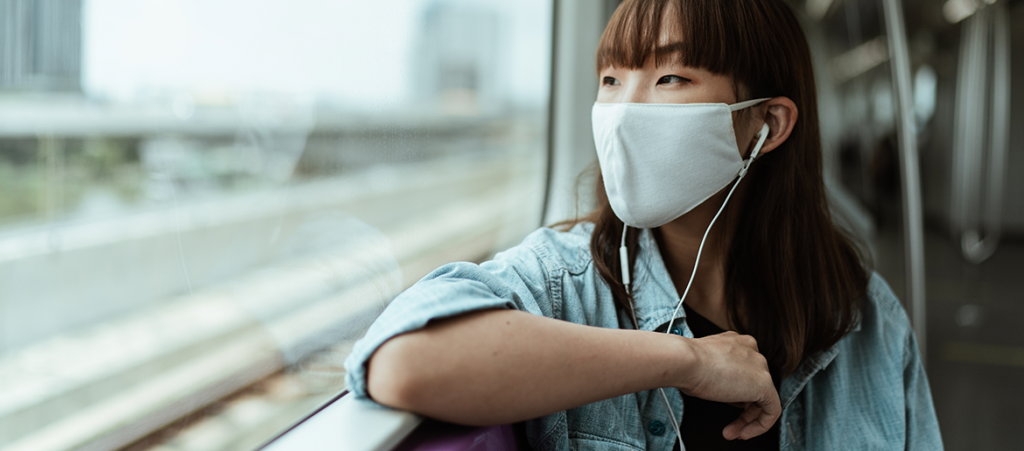
We were going to reach this point eventually. From Friday, 14 October there will be no mandatory self-isolation for people who test positive for COVID-19 in Australia. It’s happening regardless of whether you personally think it’s the right time for this move – in fact, the decision actually has very little to do with whether or not the pandemic is ‘over’.
Epidemiologist Gideon Meyerowitz-Katz perfectly explained the tension between the medical and social understanding of the pandemic: “Whether you believe the pandemic is over or not largely depends on what you’re trying to say. If you mean ‘have many/most people stopped living life like they did in 2020?’ then in some countries the answer may well be yes. If you mean ‘have people stopped getting sick and dying from Covid-19?’ then the answer is obviously no.”
In the press conference announcement, Chief Medical Officer Professor Paul Kelly expressed clearly that in scientific and health terms, the pandemic is not over. What we know about the virus – the contagious period, how it spreads and how quickly, how sick it can make us – has not changed. He and the government actually do want us to test and isolate if we get COVID-19. They just won’t be forcing anyone to do so anymore.
The scrapping of mandatory isolation sends the wrong message that the pandemic is over @CrabbBrendan tells @sunriseon7 “COVID is still here, and the biggest problem we have at the moment is a messaging one …” @RealOzSAGE @amapresident pic.twitter.com/gUu5R9v1QS
— Burnet Institute (@BurnetInstitute) October 1, 2022
A straw poll of Zee Feed readers showed roughly half feel it’s too soon to drop mandatory isolation, and half feel uncertain and confused. Who can blame them? None of the social factors of the pandemic have changed much – we have not yet had a summer social season in which cases didn’t spike; our health care systems are no better resourced; and those most vulnerable to COVID-19 are still the most vulnerable, for health or economic reasons (often both).
So where does that leave us? With a big mental shift to navigate.
Mary Spillane, clinical psychologist and Headspace App’s Mental Health expert, says it’s not surprising people feel nervous about the next phase of the pandemic. “Just trying to wrap our heads around the change, what it means and how it feels, can account for a lot of anxiety.”
If you are feeling uneasy about protections being removed on Friday, Spillane’s advice is two-fold. First, focus on what you can control. “When we focus too much on things we have no agency in, it increases anxiety. That might be going back to things you were doing at the beginning of the pandemic that felt helpful – wearing a mask in certain situations, hand sanitizing. Bring those things back into your routine.”
Just because something is no longer legally enforced, that doesn’t mean you can’t do it. If it’s more comfortable to meet friends outdoors or wear a mask in the shared areas of your apartment building, bring that back to your life.
The second part is learning to take it slow. “When there’s a big change or we’re trying to unlearn something, it’s really important to do that slowly,” Spillane says. “Don’t feel like you need to jump into the deep end and be okay with it straightaway. Take your time, ease your way back into situations that feel risky.”
Just because the government thinks two weeks’ notice is enough time for us to process a significant change, if you need more time – take it.
Here are some of the most helpful books all about dealing with mental health. https://t.co/DnURrlMwKT pic.twitter.com/AEkF6UEtxK
— ZEE FEED (@zee_feed) June 25, 2022
Sharing your feelings of vulnerability can be powerful too. “Telling other people that you’re nervous about it can be helpful. People are pretty receptive to that.” Let your social circle and community know how you’re feeling and what your boundaries are now that the rules are open to interpretation.
When the restrictions become suggestions on Friday, people will ignore them. They will be in the community in those crucial, contagious days – some will have sympathetic reasons for doing so, others will not. Spillane warns it will be difficult to persuade those people to choose differently. “If you’ve got someone who doesn’t want to isolate, rarely can you change their mind. It’s better to come back to ‘What can I do? How can I feel safe?’”
COVID-19 aside, boundary setting is an important skill to practice. Take the opportunity.
The entire pandemic (which, again, is not over) has been an immense mental challenge. Having spent almost three years hypervigilant, primed to bunker down at a moment’s notice and suffering whiplash from competing messages has taken a toll. It’s a psychological shift could never be undone in a fortnight.
“Something we see all the time now is this hard core awareness of physical illness and symptoms. There is a hyperfocus on new diseases that might pop up.” Even as a disease becomes endemic and eventually declines, the psychological effects linger. CMO Kelly says COVID-19 will be around for years to come. And when it comes to the related uncertainty and anxiousness among the population, Spillane warns: “It will hang around for a while.”
So don’t be afraid to go slow, set the boundaries you need to feel safe, and above all extend empathy to those around you. It’s frustrating that’s all we can do, when the powers that be act on opaque advice… but it really is all we can do.




Comments are closed.